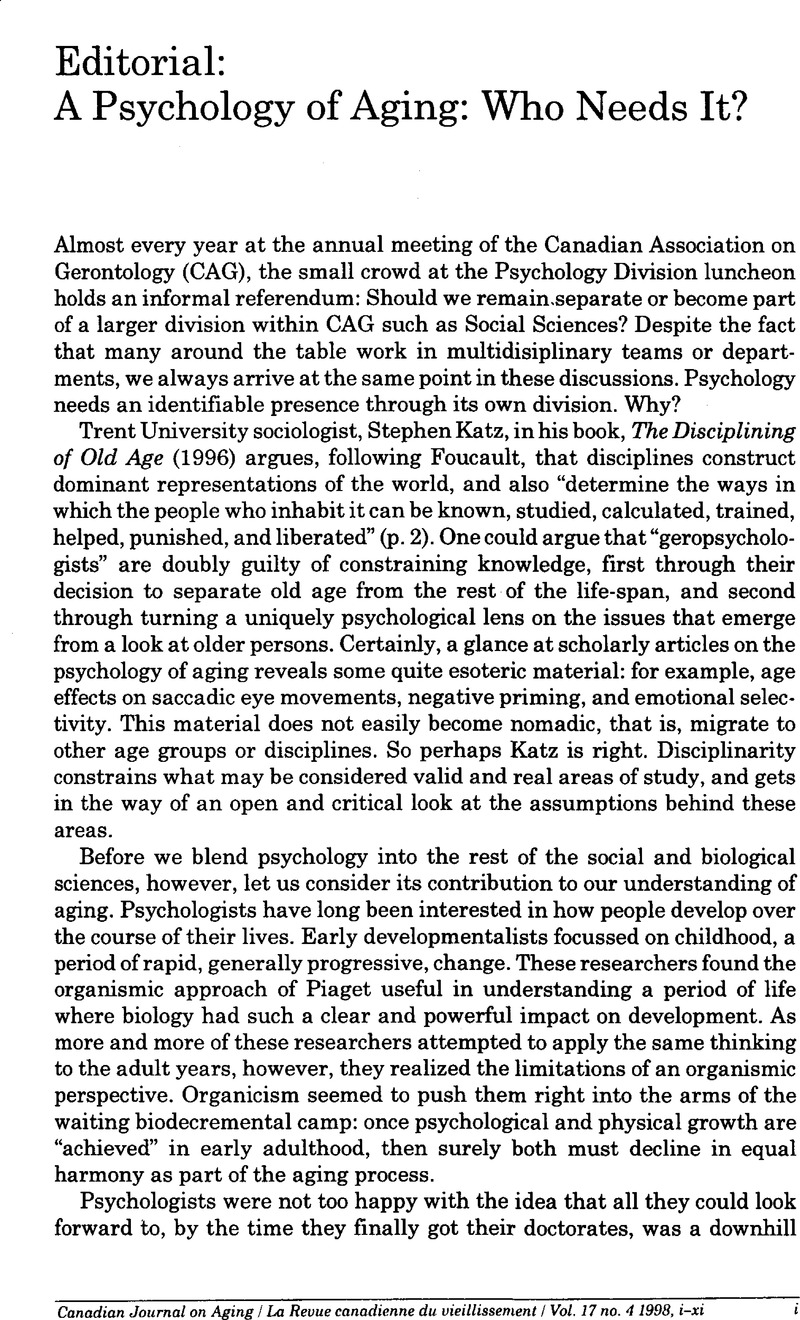Crossref Citations
This article has been cited by the following publications. This list is generated based on data provided by Crossref.
Dixon, Roger A.
and
Cohen, Anna-Lisa
2001.
The Psychology of Aging: Canadian Research in an International Context.
Canadian Journal on Aging / La Revue canadienne du vieillissement,
Vol. 20,
Issue. S1,
p.
125.



